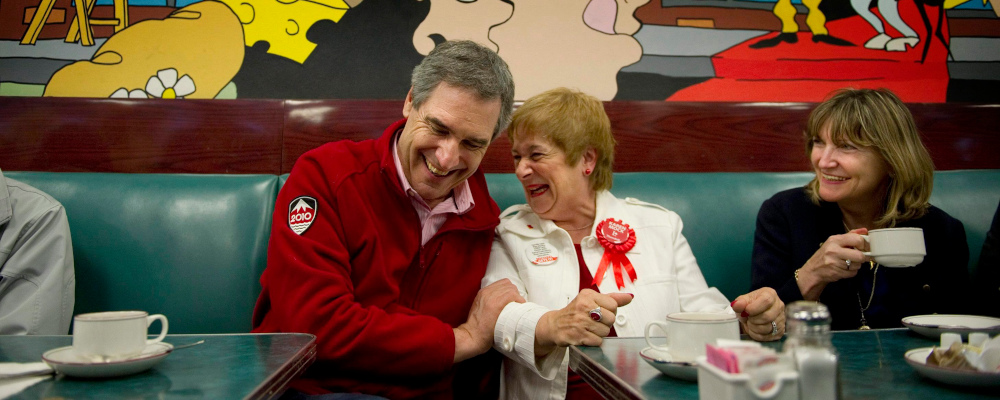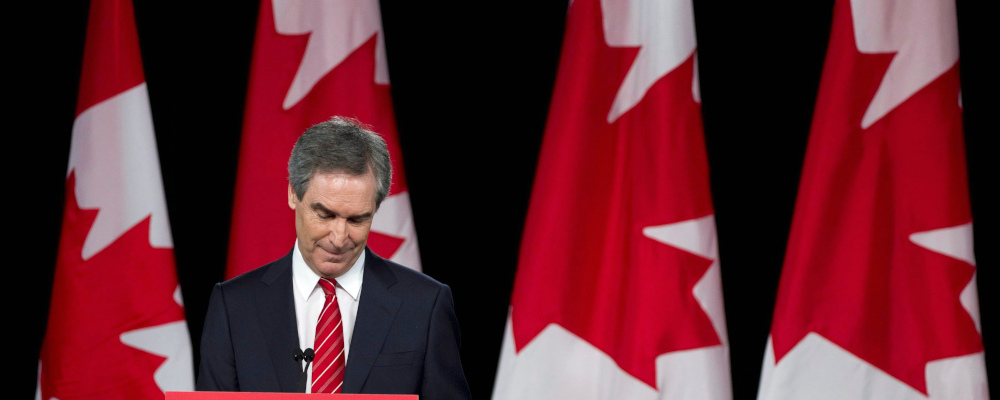The Hub’s debut DeepDive took a long hard look at Canadian happiness. The authors evidently chose their subject well, given the discussion already generated about the article’s most important revelation: Canadian youth are far more unhappy than older age groups. Eric Lombardi, in his subsequent piece examining the data, offers the millennial perspective from the frontlines of the conflict. Boomers, he says, have definitively won the intergenerational war.
For the boomer side of that story, we can look to Michael Ignatieff who has taken a critical look back at his own life. In a deeply personal essay, “The History of My Privileges,” published in the spring issue of Liberties, Ignatieff, who once led the Liberal Party of Canada (and who I should disclose I know personally), says boomers are now in the process of giving their children the most significant wealth transfer in history; much of it is in real estate and large houses where too many boomers refuse to leave.
A common perception is that boomers, those born between 1946 and 1964, had the good fortune to be born into a thriving economy: jobs were plentiful, housing and education were cheap, and in the process, they seized all the wealth they could. Though this perception is highly exaggerated, we should remember that each generation, including the boomers, played a part in shaping the current state of affairs. For better or worse, each generation grapples with the problems it inherits. Or, as the poet Philip Larkin reminds us, misery is passed from generation to generation.

Ignatieff looks back over his generation and wonders if he could examine his life, not as an individual but as a cohort member. In trying to do just that, he discovered he wasn’t unique. Many who prospered as he did were mainly male, white, heterosexual, educated, well-housed, and pensioned. Extra fortune was bestowed if favoured with loving families while growing up. These conditions made him what he became: nothing special born in the generation after the war. He was blessed with all these undeserved advantages or accidents of chance and history.
He then realizes that accidents of time and place have closed his eyes to the struggles of others who didn’t have the good fortune to grow up in a prosperous country, in a tree-lined neighbourhood in Toronto, with successful parents, and with the opportunity to get an Ivy League education. From that privileged start, Ignatieff found a fulfilling career as a writer, scholar, and filmmaker, holding prestigious academic jobs and now living in Europe. He and others like him were “wafted along by the greatest boom in the history of the world.” As he says: “Privileges do that to you.”
Ignatieff says that he and those in his circumstances defended their hard work, pointing to the “universities, hospitals, law firms—as meritocracies when they were too often only reserved for people like us.” His cohorts did open up those institutions when challenged to make room for others of different races and classes—if only to make themselves feel better about their inherited advantages. But not everyone with similar privileges finished with successful careers and gold-plated pensions; just as many boomers fell to the wayside, ravaged by the AIDS epidemic and a wildly fluctuating economy that demanded technical skills many didn’t have.
But just as he feels a sense of both gratitude and guilt, he is also defensive about his generation’s attempts to undo some of the damage they found. To blame boomers for this generation’s problems is as absurd as to condemn those in the ‘30s and ‘40s for the tragedy of the Second World War or the Cold War that followed. Those born in the baby boom years were hardly ignorant of their inherited problems. They started the fight to protect the environment. The current health and exercise craze and second-wave feminism were started in the ‘60s and ‘70s, not the 21st century. Boomers fought against racism and called for social change and human rights. At the same time, the brightest made life-changing medical and technological advances, all under a liberal, rules-based international order.

And yet it is also true that this era led to the dubious legacy of critical race theory and identity politics, where group rights supersede individual rights. Privileges and power now define the interaction between groups, not the dynamics of politics or economics.
Ultimately, Ignatieff rids himself of the illusion that the liberal democratic West could spread the freedom we enjoy to others. He blames his privileges for obscuring his view of capital-H History’s direction. He admits he was too North American-centric to see that the world’s capital may be moving from the West to East Asia forever, leaving behind a Europe that looks in rapid decline.
However, it is hard to believe that without those privileges Ignatieff’s vision would have been any clearer. Those blinkers come with our culture, family circumstances, and zeitgeist. But is it necessary to come clean about one’s advantages in life? There’s an element of noblesse oblige in confessing one’s privileges. But something else is missing in Ignatieff’s lament.
Rich or poor, immigrants, recent or old, French, English, or First Nations, we are all thrust into History. Many of us who weren’t born here were fortunate to find a country where free markets and the rule of law provided a level of prosperity and freedom unmatched elsewhere—values we tend to malign today. That good fortune was the gift of past generations and entirely undeserved.




